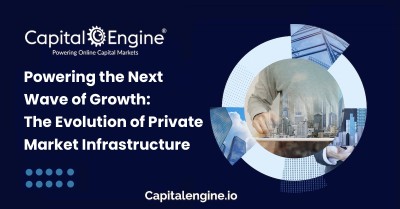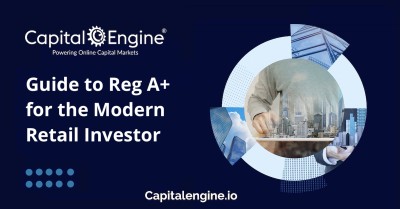FLEXIBLE WORKSPACE: THE NEW STAPLE DIET FOR OFFICE SPACES

Posted by Nidhi Marwah BW.People BusinessWorld
We can see companies changing the way they take up space and adopting a flex-and-core strategy, which is a model that can be tailored to suit the size and needs of the organization as we move into a “new normal”.
As we see a global shift towards more agile and innovative space solutions, the office space needs of companies are drastically changing. Especially in the South Asia market, reducing Capex cost has become the topmost priority for every organisation; in a climate like this, implementing flexibility in real estate is essential.
While the current situation has accelerated the shift to remote working, a lot of companies are adopting a hub-and-spoke structure as a reaction to safety and cost concerns.
We can see companies changing the way they take up space and adopting a flex-and-core strategy, which is a model that can be tailored to suit the size and needs of the organization as we move into a “new normal”.
PRIVACY & CONVENIENCE WILL SHAPE THE OFFICE OF THE FUTURE
There are two main trends that we see shaping the design of the future office: an increasing need for privacy & security, and greater convenience and efficiency through technology to support productivity.
Density is the differentiator. Many players in the flexible workspace industry side stepped SOP’s when it came to floor plan density of their spaces, which is costing them now. The new social distancing norms has made privacy a staple need, it is no more a luxury which could be excluded.
Flexible workspaces who have maintained low density floor plans as global standards have gained the early advantage by adapting easily and effortlessly to the new normal.
In the future, high dense workspaces with maximum workstations is going to be extinct. There is a fine balance between privacy and collaboration and the future of workspaces is one where both coexist
Technology will play a big part in the future of office design, to boost productivity, facilitate remote working, promote hygiene, and enhance audio-visual experiences to boost morale. In the wake of this pandemic, the world is forced to use technology to enhance productivity and make the most of remote working, this is true disruption.
What we need to keep in mind is that this change in user behaviour is not temporary, due to the prolonged period of this pandemic, new user behaviours are going to be forged which will impact the future of work.
For workspaces of the future. apps can be used to reduce operational tasks in the office space and to increase collaboration. We need to stop looking at technology as a medium of isolation and implement existing technology in new and innovative ways to increase collaboration in the workspace.
EXPERIMENTATION IS KEY
In these constantly changing circumstances, the next disruption in the industry is always around the corner, so an open mind is essential. It is the delicate balance between ever evolving spaces and increasing push towards compliance that ensure credibility and transparency.
There will be experiments, successes and failures, all of which will ultimately help us learn what it is that enables us to work smarter. Data will be an essential touchpoint that will allow businesses to tailor designs, technologies and programs to help the teams and individuals that use them.
The concept of the ‘office’ as a fixed or static space will no doubt change as remote and flexible working becomes a new normal. Ultimately, the future of work is part of an evolutionary process that aims to make us more efficient, more creative and more connected.
About Capital Engine® Powering Online Capital Markets
Capital Engine® is a financial technology company, providing investment professionals and advisors (Broker Dealers, Family Offices, Wealth Managers, Incubators, Accelerators, RIAs, GP/LPs and real estate funds) with customized SaaS solutions to power private label capital and alternative investment platforms, with a strong focus on investor management services.
Capital Engine's software helps leverage the opportunity to better originate and showcase a diverse selection of private investment deals and offer these to investors (HNW, UHNW and Family Office) i.e. a deal’s potential viability can be better assessed, market appetite determined and transaction promptly closed.
Strategic Partnership Model
Our business model is to partner with industry experts in real estate, venture capital, healthcare, renewable energy, cannabis, impact funding and crypto projects, in setting up investment platforms, online marketplaces and trading exchanges using our software.
Online Marketplace
Our online marketplace is filling a massive gap in the US market in funding private capital markets and alternative investments: Reg D 506 (c) and Reg S (International) based real estate, venture capital, healthcare, renewable energy, social impact and crypto projects, with UK and South Africa platforms following soon.
Click for more info or to request an online demo
We can see companies changing the way they take up space and adopting a flex-and-core strategy, which is a model that can be tailored to suit the size and needs of the organization as we move into a “new normal”.
As we see a global shift towards more agile and innovative space solutions, the office space needs of companies are drastically changing. Especially in the South Asia market, reducing Capex cost has become the topmost priority for every organisation; in a climate like this, implementing flexibility in real estate is essential.
While the current situation has accelerated the shift to remote working, a lot of companies are adopting a hub-and-spoke structure as a reaction to safety and cost concerns.
- Due to COVID-19, people are concerned with the maintenance of hygiene in public areas. Many may avoid using shared facilities, including coming into the office, where people work within close proximity of each other.
- As a result, traditional leases with long rental periods have become a heavy burden, and companies are beginning to consider rental arrangements that provide more flexibility as a solution.
- Working away from the company headquarters does not necessarily mean working from home as an urbanite’ homes may not be work-friendly. Internet connections are often weak and unstable, there could be too many distractions that affect productivity, or they're simply might be a lack of space for one to work efficiently.
- Flexible workspaces provide a solution for companies that wish to implement remote working policies. Employees can work and collaborate at “spoke locations” (flexible workspaces), and benefit from not having to commute long distances across the city.
- Many clients are turning to an A/B teams’ model, dividing their teams into smaller groups and assigning them to work in multiple flexible workspaces to ensure employee safety and to minimize costs.
We can see companies changing the way they take up space and adopting a flex-and-core strategy, which is a model that can be tailored to suit the size and needs of the organization as we move into a “new normal”.
PRIVACY & CONVENIENCE WILL SHAPE THE OFFICE OF THE FUTURE
There are two main trends that we see shaping the design of the future office: an increasing need for privacy & security, and greater convenience and efficiency through technology to support productivity.
Density is the differentiator. Many players in the flexible workspace industry side stepped SOP’s when it came to floor plan density of their spaces, which is costing them now. The new social distancing norms has made privacy a staple need, it is no more a luxury which could be excluded.
Flexible workspaces who have maintained low density floor plans as global standards have gained the early advantage by adapting easily and effortlessly to the new normal.
In the future, high dense workspaces with maximum workstations is going to be extinct. There is a fine balance between privacy and collaboration and the future of workspaces is one where both coexist
Technology will play a big part in the future of office design, to boost productivity, facilitate remote working, promote hygiene, and enhance audio-visual experiences to boost morale. In the wake of this pandemic, the world is forced to use technology to enhance productivity and make the most of remote working, this is true disruption.
What we need to keep in mind is that this change in user behaviour is not temporary, due to the prolonged period of this pandemic, new user behaviours are going to be forged which will impact the future of work.
For workspaces of the future. apps can be used to reduce operational tasks in the office space and to increase collaboration. We need to stop looking at technology as a medium of isolation and implement existing technology in new and innovative ways to increase collaboration in the workspace.
EXPERIMENTATION IS KEY
In these constantly changing circumstances, the next disruption in the industry is always around the corner, so an open mind is essential. It is the delicate balance between ever evolving spaces and increasing push towards compliance that ensure credibility and transparency.
There will be experiments, successes and failures, all of which will ultimately help us learn what it is that enables us to work smarter. Data will be an essential touchpoint that will allow businesses to tailor designs, technologies and programs to help the teams and individuals that use them.
The concept of the ‘office’ as a fixed or static space will no doubt change as remote and flexible working becomes a new normal. Ultimately, the future of work is part of an evolutionary process that aims to make us more efficient, more creative and more connected.
REMOTE WORK MARKET
Below are just a few of the statistics which demonstrate and forecast this shift in the work environment:
- 70% of professionals work remote at least one day a week
- 53% of professionals work remote at least half the week
- There are 57 million freelancers in the U.S. representing 35% of the nation’s workforce
- 50% of the working U.S. population will turn to freelance work over the next five years
- This trend will continue and by the year 2028 there will be 90.1 million freelancers
"Remote Work is the driving force behind the coworking industry."
- A study by Cushman and Wakefield, estimates that coworking is growing at a rate of 10-15% annually.
Dropin Enterprises, Inc. is forming Dropin Investment Fund I, LLC to respond to this momentous shift in the global workforce through expansion of our dropin® Remote Work Spaces to the Sacramento metropolitan area. For this round, dropin® Remote Work Spaces is seeking a total raise of $3,000,000.
The funds will allow us to expand our dropin® Remote Work Spaces to the Sacramento metropolitan area among other milestones – see link to investment page on Capital Engine® https://bit.ly/2ZV2vIZ
About Capital Engine® Powering Online Capital Markets
Capital Engine® is a financial technology company, providing investment professionals and advisors (Broker Dealers, Family Offices, Wealth Managers, Incubators, Accelerators, RIAs, GP/LPs and real estate funds) with customized SaaS solutions to power private label capital and alternative investment platforms, with a strong focus on investor management services.
Capital Engine's software helps leverage the opportunity to better originate and showcase a diverse selection of private investment deals and offer these to investors (HNW, UHNW and Family Office) i.e. a deal’s potential viability can be better assessed, market appetite determined and transaction promptly closed.
Strategic Partnership Model
Our business model is to partner with industry experts in real estate, venture capital, healthcare, renewable energy, cannabis, impact funding and crypto projects, in setting up investment platforms, online marketplaces and trading exchanges using our software.
Online Marketplace
Our online marketplace is filling a massive gap in the US market in funding private capital markets and alternative investments: Reg D 506 (c) and Reg S (International) based real estate, venture capital, healthcare, renewable energy, social impact and crypto projects, with UK and South Africa platforms following soon.
Click for more info or to request an online demo
Latest Articles





